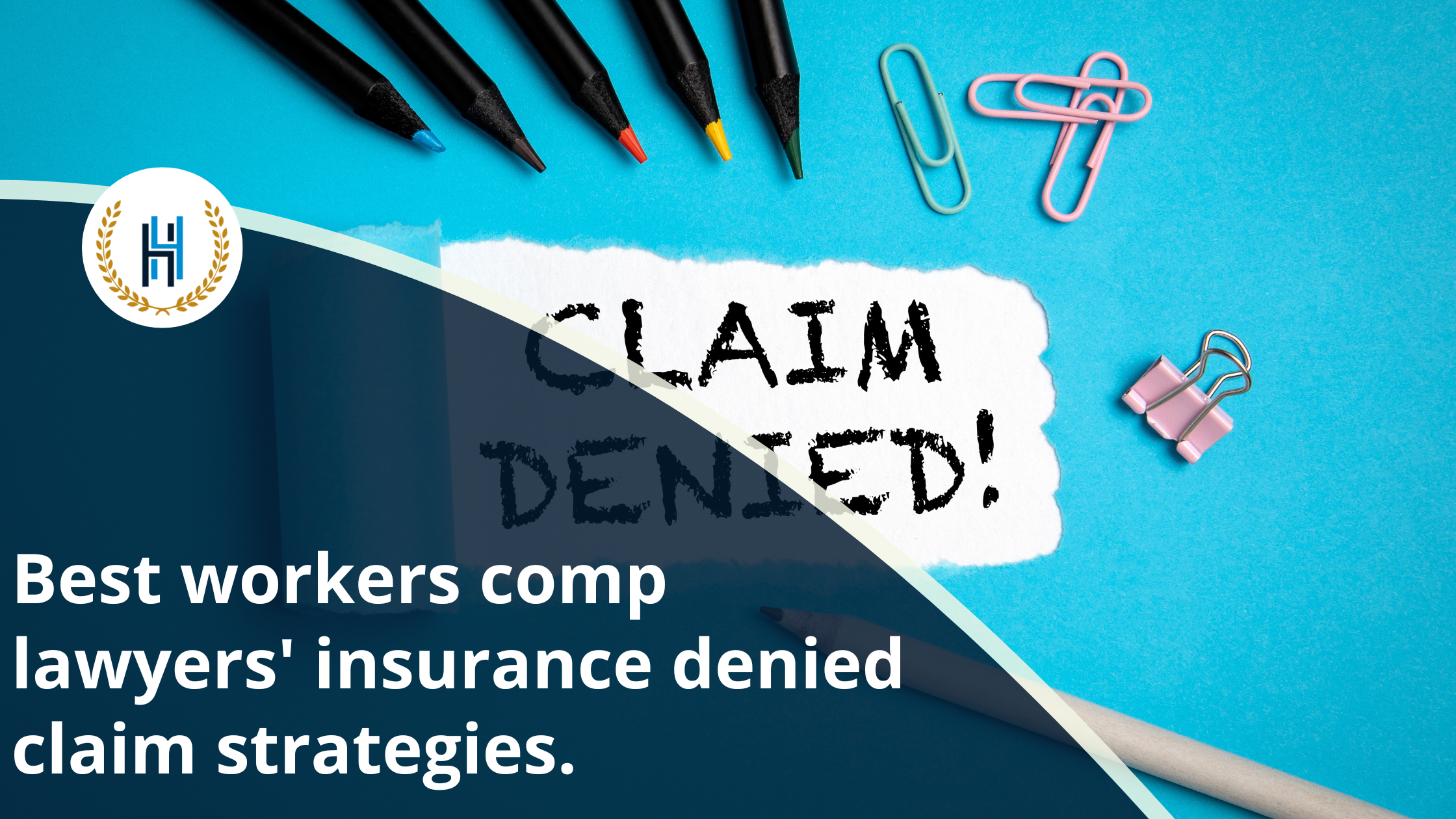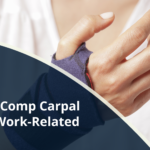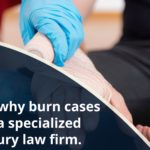Filing a workers’ compensation claim should be easy and ensure workers obtain compensation for workplace injuries. However, insurance companies can deny or fight claims, leaving workers unhappy, bewildered, and unclear of how to proceed. If your workers’ compensation claim was denied, you should know your choices and how to appeal. In this article, we will delve into the essential strategies to handle Insurance Denied Claim by our best workers comp lawyers.
How to Handle an Insurance Denied Claim by our best Workers Comp Lawyers?
Denying a workers’ compensation claim can be annoying and confusing. Insufficient documentation, missing deadlines, and arguments about work-related injury are common reasons insurance companies decline claims. The top workers’ compensation lawyers can help you handle insurance denials and obtain you the compensation you deserve. Below are crucial actions and methods to appeal successfully and get your claim approved.
- Understand the Denial Reasons: Understanding why your workers’ compensation claim was denied is the first step. Insurance providers usually explain, but if you need additional information, ask. Workers’ compensation claims sometimes require injury reporting within a specific date. Failure to notify your employer of the injury within the required period may result in a denial.
- Appeal the Denial: Appealing an insurance denied claim is crucial. You can legally appeal the insurer’s judgment in most workers’ compensation systems. Following the correct procedures is essential when appealing a denial, which can be complicated. Your denial letter should explain why your claim was refused. Knowing why will help you write a persuasive appeal.
- Gather proof: After the insurance denied claim, acquire further proof to support your argument. This may include medical records, witness testimony, or expert views that prove your damage is work-related. Workers’ compensation appeals have a limited timeframe, so act promptly. Missing deadlines could permanently revoke your appeal.
- Provide More Medical Documentation: Insufficient medical evidence of a work-related injury often has an insurance denied claim. Providing additional paperwork from your healthcare professionals is a good idea. Make sure your doctor explains your diagnosis, treatment plan, and how the injury is related to your job.
- Independent Medical Examination: You can request an independent medical exam if the insurance company questions the medical evidence. IMEs can assess your injury’s severity and job-relatedness impartially. Our workers’ compensation lawyers collaborate with medical doctors and experts to build strong medical proof for your case.
- Get Legal Help: A denied workers’ compensation claim might be difficult to navigate. A trained and experienced workers’ compensation lawyer can make a big impact. Reviewing the denial and acquiring more evidence: Workers’ comp lawyers can explain the refusal and suggest more documents or medical records. An attorney will represent you in court or a hearing to present your case in the best light. If an appeal or negotiation is needed, an attorney can negotiate with the insurer to get you the amount you deserve. Worker’s compensation lawyers protect your rights and prevent insurance companies from exploiting you.
- Consider mediation or ADR: ADR procedures like mediation may help a workers’ compensation claim. A neutral third party mediates between you and the insurance company to obtain a settlement without going to court. Mediation can speed the resolution and avoid a lengthy court struggle. It also lets parties settle without a trial.
- File a Workers’ Compensation Board Formal Hearing or Claim: If your appeal is dismissed and mediation fails, you can request a workers’ compensation board or administrative law judge hearing. During this hearing, you and your attorney will present your case, and the ALJ will approve or deny insurance denied claim.
- Consult a Workers Comp Lawyer: Your attorney will prepare and present medical documents, documentation, and other evidence to support your claim. A qualified attorney will prepare you to testify and answer judge and insurance company questions. Your attorney will represent you at the hearing to ensure the best outcome.
- Consider Suing If Needed: You may sue if your claim is denied after all appeals and dispute resolution options. Your workers’ compensation lawyer will advise you on whether to sue. A lawsuit can be lengthy and complicated, so you need a qualified attorney to fight for your money.
- Avoid Claim Denials: After an insurance denied claim, follow your employer’s and insurance company’s processes. To avoid delays or filing complications, notify your injuries to your employer as soon as possible, preferably in writing.
Wrapping Up
/ A failed workers’ compensation claim might be devastating, but it’s not the end. You can increase your chances of collecting compensation by understanding the refusal, challenging it, giving more medical data, and hiring an insurance denied claim lawyer. Our skilled workers’ compensation lawyers at Hollingsworth & Hollingsworth APC will help you navigate the legal complexity and fight for your rights. If your claim was refused, contact us now at (619) 374-9320 for a free consultation to start pursuing your compensation.









